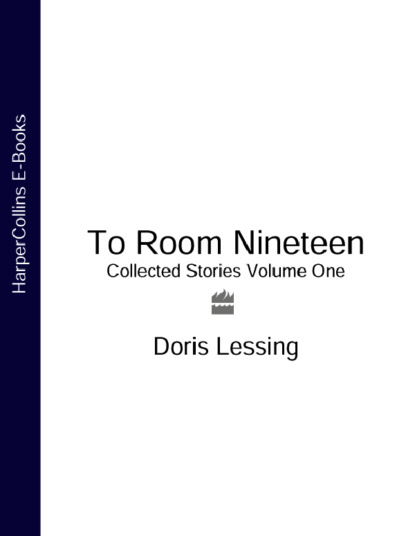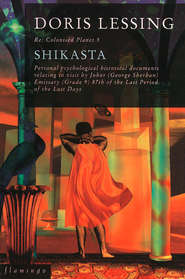По всем вопросам обращайтесь на: info@litportal.ru
(©) 2003-2024.
✖
To Room Nineteen: Collected Stories Volume One
Автор
Год написания книги
2019
Настройки чтения
Размер шрифта
Высота строк
Поля
‘That’s right.’ And then, in a prepared voice: ‘It’s your stomach, after all.’
‘That’s what I always said.’ To himself he said: Might be my bloody wife. For his wife had come to say at last: ‘It’s your stomach, if you want to die ten years too soon …’
If he had attacks of terrible pain in the night, after a plateful of fried onions, or chips thick with tomato sauce, he would lie rigid beside her, concealing it, just as he had with his wife. Women fussing! Fussing women!
He asked himself continually why he did not break it off. A dozen times he had said to himself: That’s enough now, it’s no good, she doesn’t love me, anyway. Yet by evening he was back at the pub, flirting tentatively with Pearl, until the time came when he could delay no longer. And back he went, as if dragged, to Rose. He could not understand it. He was behaving badly – and he could not help himself; he should be studying for his exam – and he couldn’t bring himself to study; it would be so easy to make Rose happy – and he couldn’t take the decisive step; he should decide not to return to Pearl in the evenings, and he could not keep away. What was it all about? Why did people just go on doing things, as if there were dragged along against their will, even against what they enjoyed?
One Saturday evening Rose said: ‘Tomorrow I won’t be here.’
He clutched at her hand and demanded: ‘Why not? Where are you going?’
‘I’m going to take Jill out all day and then have supper with her Granny.’
Breathing quickly, his lips set hard, he brought out: ‘No time for me any more, eh?’
‘Oh, Jimmie, have some sense.’
Next morning he lay in bed and watched her dress to go out. She was smiling, her face soft with pleasure. She kissed him consolingly before she left, and said: ‘It’s only on Sundays, Jimmie.’
So it’s going to be every Sunday, he thought miserably.
In the evening he went to the pub. It was Pearl’s evening off. He had thought of asking her along to the pictures, but he didn’t know where she lived. He went to his home. The children were in bed and his wife had gone to see a neighbour. He felt as if everyone had let him down. At last he went back to the flat and waited for Rose. When she came he sat quietly, an angry little smile on his face, while she chatted animatedly about Jill. In bed he turned his back on her and lay gazing at the greyish light at the window. It couldn’t go on, he thought; what was the point of it? Yet he was back next evening as usual.
Next Sunday she asked him to go with her to see Jill.
‘What the hell!’ he exclaimed, indignantly.
She was hurt. ‘Why not, Jimmie? She’s so sweet. She’s such a good girl. She’s got long golden ringlets.’
‘I suppose George had long yellow ringlets, too,’ he said, sardonically.
She looked at him blankly, shrugged, and said no more. When she had gone he went to Pearl’s house – for he had asked for the address – and took her to the pictures. They were careful and polite with each other. She watched him secretly: his face was tight with worry; he was thinking of Rose with that damned brat – she was happy with Jill, when she couldn’t even raise a smile for him! When he said good night, Pearl drawled out: ‘Do you even know what the film was called?’
He laughed uncomfortably and said: ‘Sorry, Pearl, got things on my mind.’
‘Thanks for the information.’ But she was not antagonistic; she sounded sympathetic. He was grateful for her understanding. He hastily kissed her cheek and said: ‘You’re a nice kid, Pearl.’ She flushed and quickly put her arms around his neck and kissed him again. Afterwards he thought uneasily: If I just lifted my little finger I could have her.
At home Rose was cautious with him and did not mention Jill until he did. She was afraid of him. He saw it, and it made him half-wild with frustration. Anyone’d think that he was cruel to her! ‘For crying out aloud, Rose,’ he pleaded, ‘what’s the matter with you, why can’t you be nice to me?’
To which she sighed and asked in a dry, tired voice: ‘I suppose Pearl is nice to you.’
‘Hell, Rosie, I have to do something when you’re away.’
‘I asked you to come with me, didn’t I?’
They were on the verge of some crisis, and both knew it, and for several days they were treating each other almost like strangers, for fear of an explosion. They hardly dare let their eyes meet.
On the following Saturday evening Rose inquired: ‘Made a date with Pearl for tomorrow?’
He was going to deny it, but she went on implacably: ‘Things can’t go on like this, Jimmie.’ He was silent, and then she asked suddenly: ‘Jimmie, did you ever really ask your wife to divorce you?’
He exploded: ‘Hell, Rosie, are you going back to that now?’
‘I suppose you are thinking it’s not my affair and I’m interfering,’ she said, and laughed with that unexpected, grim humour of hers.
Rose went off to Jill in the morning without another word to him. As for him, he went to Pearl. The girl was gentle with him: ‘If you don’t feel like the pictures, you don’t have to take me,’ she said, sympathetically. So they went to a café and he said, abruptly: ‘You know, Pearl, it’s no good getting to like me, women think I’m poison when they get to know better.’ He was grinning savagely and his hands were clenched. She reached out, took one of them and said: ‘It’s for me to say what I want, isn’t it?’
‘Don’t say I didn’t warn you,’ he said at random, putting his arm around her, feeling that he had, by this remark, absolved himself of all responsibility for Pearl. He was thinking of Rose. She’d be back home by now. Well, it’d do her good not to find him there. She just took him for granted, and it was a fact. But after a restless five minutes he said: ‘I better be getting along.’ When he left her, Pearl said: ‘I love you, Jimmie, don’t forget that. I’d do anything for you, anything …’ She ran into the house, and he saw she was crying. She loves me, at any rate, he thought, thinking angrily of Rose. Slowly he climbed the long, dark stairs. He was very tired again. I must get some sleep, he mused, dimly, this can’t go on, it wears a man out, I’ll go straight to bed and sleep.
But he opened the door on bright light; she was already in, seated at the table. She was still in ber best clothes: a neat grey suit, white blouse, brooch; and her hair looked as if she had just combed it. Her face was what held him: she looked tight-lipped, determined, even triumphant. What’s up? he thought.
‘Don’t go to bed straight away,’ she said – for he was throwing off his shoes and coat. ‘There’s something we’ve got to do.’
‘It’d better be pretty important,’ he said. ‘I’m dead on my feet.’
‘For once you’d better stay on your feet.’ This brutal note was new and astonishing from Rose.
‘What’s going on?’
‘You’ll see in a minute.’
He almost ignored her and went to bed; but at last he compromised by pushing the pillows against the wall and leaning on them. ‘Wake me up when the mystery’s ripe,’ he said, and dropped off at once.
Rose remained at the table in a stiff attitude, watching the door and listening. The day before she had made a decision. Or rather, a decision had been made for her. It had come into her head: Why not write and ask? She’ll know … At first the idea had shocked her. It was a terrible thing to do, contrary to what she felt to be the right way to behave. And yet from the moment it entered her head, the idea gathered strength until she could think of nothing else. At last she sat down and wrote:
Dear Mrs Pearson, I am writing to you on a matter which is personal to us both, and I hope it gives no offence, because I am not writing in that spirit. I am Rose Johnson, and your husband has been courting me for two years since before the war stopped. He says you live separate and you won’t divorce him. I want things to be straight and proper now, and I’ve been thinking perhaps if we have a little talk, things will be straight. If this meets with your approval, Jimmie will be home tomorrow night, ten or so, and we could all three have a talk. Believing me, I mean no trouble or offence.
Вы ознакомились с фрагментом книги.
Приобретайте полный текст книги у нашего партнера:
Приобретайте полный текст книги у нашего партнера:











